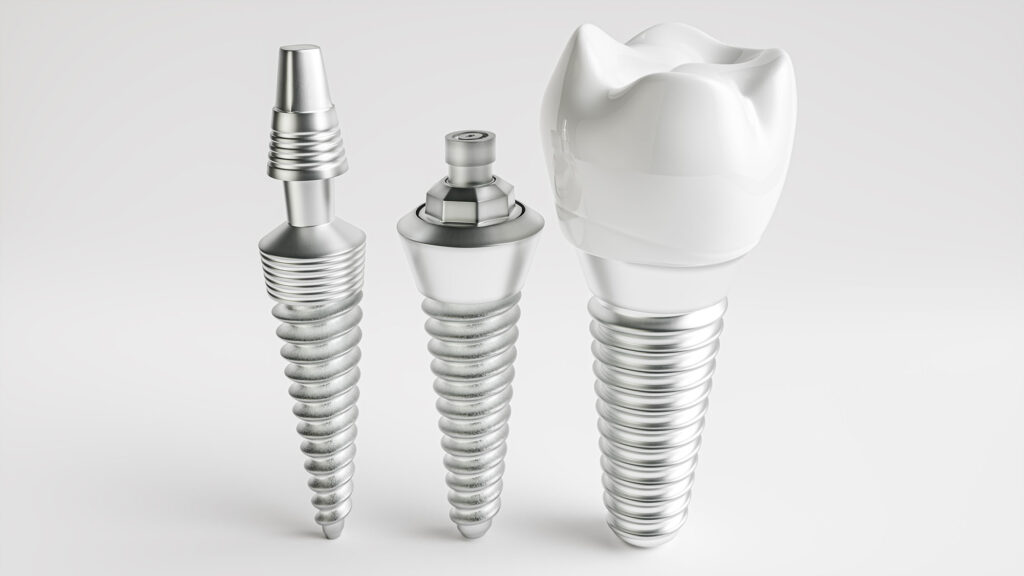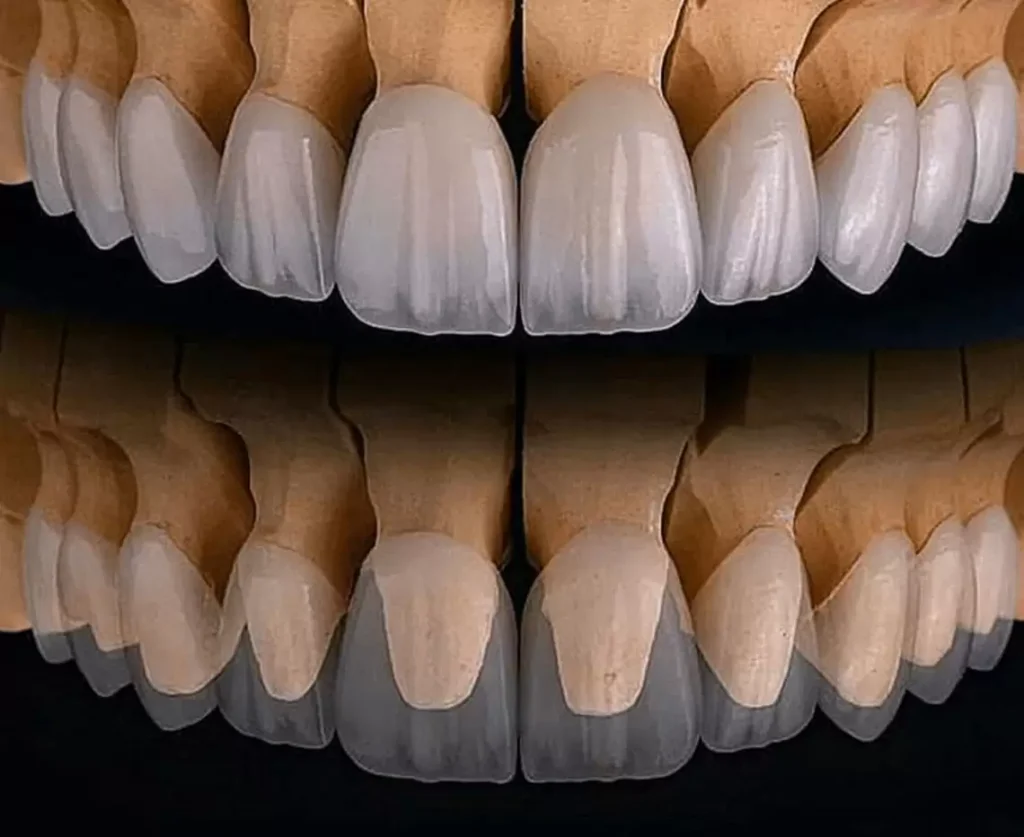One of the most frequent questions patients ask when exploring dental restorations is this: Are implants cheaper than crowns? At first glance, the answer might appear straightforward. Dental crowns typically cost less than dental implants in terms of initial investment. However, the comparison becomes more complex when you factor in longevity, functional value, maintenance costs, and treatment goals.
If you’re deciding between a dental crown and a dental implant, it’s essential to understand the procedures, cost structures, lifespan, and the biological consequences of each solution. Making the right choice now can save you from pain, additional procedures, and unnecessary expenses later.

What Will You Read?
What Is the Difference Between a Crown and an Implant?
To compare costs meaningfully, you must first understand what each treatment involves.
- A dental crown is a restorative cap placed on top of a damaged or treated natural tooth. It is typically used when a tooth has been cracked, severely decayed, or undergone root canal treatment.
- A dental implant is a complete tooth replacement system that includes a titanium post, a connector (abutment), and a custom crown. The implant acts as an artificial root and requires surgical placement in the jawbone.
In short, crowns repair and protect existing teeth, while implants replace missing or non-restorable teeth entirely. They are not directly interchangeable, but they may serve similar cosmetic and functional roles depending on the dental condition.
Cost Comparison: Crowns vs Implants
Let’s break down the financial differences between the two.
Dental Crown Costs (on a natural tooth):
- Tooth preparation: $100–$400
- Root canal (if needed): $300–$1,500
- Crown material (porcelain, zirconia): $800–$1,500
- Total estimated cost: $1,000–$2,500

Dental Implant Costs (with crown):
- Consultation and imaging: $100–$300
- Surgical placement of implant: $1,200–$2,500
- Abutment and crown: $800–$1,500
- Total estimated cost: $2,500–$5,000
This makes it clear that dental crowns are significantly less expensive than implants at the time of treatment. But does that make them the cheaper long-term option?
The Long-Term Perspective: What Do You Really Pay?
Initial costs are just one part of the equation. To determine which option is truly more cost-effective, consider the following:
- Crown durability is typically 10 to 15 years. After that, it may need replacement.
- Implants, on the other hand, are designed to last 25 years or more, often for life.
- Teeth under crowns may continue to weaken or decay over time, leading to repeated treatments or extraction.
- Implants do not decay and prevent bone loss, providing a more stable and functional long-term result.
In other words, while crowns cost less now, implants may save more in the long run due to fewer replacements and lower complication rates.
Functional Advantages: Stability and Performance
Here’s how crowns and implants compare functionally:
| Feature | Dental Crown | Dental Implant |
|---|---|---|
| Lifespan | 10–15 years | 25+ years |
| Requires root canal | Often | No |
| Replaces missing tooth root | No | Yes |
| Risk of decay | Yes | No |
| Prevents bone loss | No | Yes |
| Bite force | Moderate | High (natural tooth level) |
| Total cost over 30 years | $3,000–$6,000 | $2,500–$5,000 (one-time) |
While crowns are ideal for preserving existing teeth, they have biological limitations that can increase future dental costs. Implants, although initially more expensive, offer a more stable and permanent solution.
When Is a Crown a Better Option?
A dental crown may be the better choice if:
- The tooth has sufficient root structure.
- You want to retain your natural tooth.
- The surrounding bone and gum tissue are healthy.
- The damage is restorable without extraction.
Crowns are minimally invasive, quick to place, and effective for protecting weakened teeth. However, they are only viable if the tooth structure is strong enough to support them.
When Should You Choose a Dental Implant?
A dental implant is a superior solution if:
- The tooth is missing or needs to be extracted.
- There is severe decay or infection.
- You want a long-lasting, stable replacement.
- You aim to prevent bone loss in the jaw.
- You’ve had multiple failed restorations on the same tooth.
In these situations, crowns may offer only temporary relief, whereas implants provide permanent support and function.
Are Implants Always More Expensive?
Implants can be surprisingly affordable depending on your location. Here’s a quick country-by-country price comparison:
| Country | Crown (USD) | Implant + Crown (USD) |
|---|---|---|
| USA | $1,200–$1,800 | $3,000–$5,000 |
| UK | £600–£1,200 | £2,000–£3,500 |
| Germany | €700–€1,500 | €2,000–€4,000 |
| Australia | $1,000–$1,600 | $3,500–$5,500 |
| Turkey | $200–$400 | $700–$1,200 |
As seen above, Turkey offers highly competitive rates for both crowns and implants without compromising quality. Many patients from Europe and North America choose to travel to Turkey for this reason.
Why Are Dental Implants Cheaper in Turkey?
Dental tourism in Turkey has grown exponentially in recent years due to:
- Lower operating costs
- No compromise on quality materials
- Dentists trained in Europe or the USA
- Modern, fully equipped clinics
- All-inclusive packages with hotel and transfers
You can receive a world-class implant in Turkey at a fraction of the cost, with full transparency on procedures and warranties.
Implant vs Crown: Pros and Cons Summary
| Criteria | Dental Crown | Dental Implant |
|---|---|---|
| Upfront cost | Lower | Higher |
| Lifespan | 10–15 years | 25+ years |
| Bone preservation | No | Yes |
| Decay resistance | Moderate | High (non-organic material) |
| Required maintenance | Higher | Lower (with proper care) |
| Replacement frequency | 2–3 times in lifetime | Rarely |
| Total cost over 30 years | Can exceed implant cost | More economical long term |
Which Option Has Better Aesthetic Results?
Both crowns and implants use high-quality materials like zirconia or porcelain, which mimic natural enamel perfectly. However:
- Implants restore both function and appearance by replacing the root and crown.
- Crowns on damaged teeth may still show signs of gum recession or darkened margins over time.
If you’re seeking a flawless, permanent smile, implants offer the most natural-looking results.
Final Thoughts
So, are implants cheaper than crowns? Not initially, but over time, they can be the smarter financial and clinical choice. If you are trying to restore a healthy tooth, a crown is effective and affordable. But if the tooth is missing or structurally compromised, an implant provides a long-lasting, biologically superior solution.
For patients concerned about cost, dental implants in Turkey present an excellent alternative. You’ll gain access to affordable, world-class care without sacrificing safety or aesthetics.
Ultimately, the best decision depends on your oral health status, long-term goals, and budget. A qualified dentist will help you weigh the options and recommend the most suitable treatment plan tailored to your needs.

 Dijital Performans Ajansı.
Dijital Performans Ajansı.